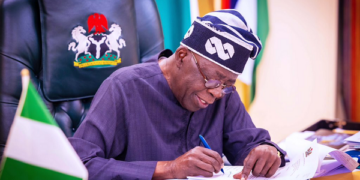Minister of Works and Housing, Babatunde Fashola, says the assertion by his counterpart, Minister of State, Labour and Employment, Festus Keyamo, that President Muhammadu Buhari’s recent action on the redesigned naira notes amounted to contempt of the Supreme Court is not entirely true.
Recall that Keyamo had faulted directive by Buhari that the old N200 be recirculated until April 10, 2023, while the old N500 and N1,000 cease to be legal tender.
Keyamo, who is a spokesperson for the All Progressives Congress Presidential Campaign Council, had in an interview on Channels Television, said the president was wrongly advised to make the pronouncement in a nationwide broadcast.
APP PCC spokesperson said he would have advised the president to comply with the Supreme Court order, which was to recirculate all the old notes until they decide on the matter.
However, Fashola, who is also a Senior Advocate of Nigeria (SAN), at the weekend, argued that the directive of the president was not a direct affront to Supreme Court that had momentarily stopped the move to ban the old currencies by February 10, 2023.
Former Lagos state governor, while speaking on TVC, on Sunday, maintained that the president only took the step to help ameliorate the hardships of Nigerians who were bearing the brunt of the policy.
He stated that although the naira swap policy needed to be reviewed, the president took the decision because he had seen the suffering many Nigerians were facing and not to spite the apex court.
Fashola explained, “Let me say that in a democracy where there is a right to speak freely, there’s bound to be divergence of views, as you have had. But I think that the principle about respecting and awaiting the outcome of a court decision sometimes has been stretched, if I may use that word.
“There is also a lot of jurisprudence and scholarship about the boundaries of contempt in actions done and in things said. If I shut the door on your finger, and you went to court to say that the court should direct me to remove or open the door, do I say let’s wait for the outcome of court decision when you are in pain, and people are in pain?
“The question to ask is if I attempt to open that door, would you, the person in pain, say I was acting in contempt or would you gladly have me open the door and then go back to the court and say the matter we have resolved it?
“And that is another angle to look at this thing because I think that whatever interventions the president sought to make were interventions in response to the very palpable pain and I think he said that much in his speech about the unintended consequences of the policy.”










Discussion about this post